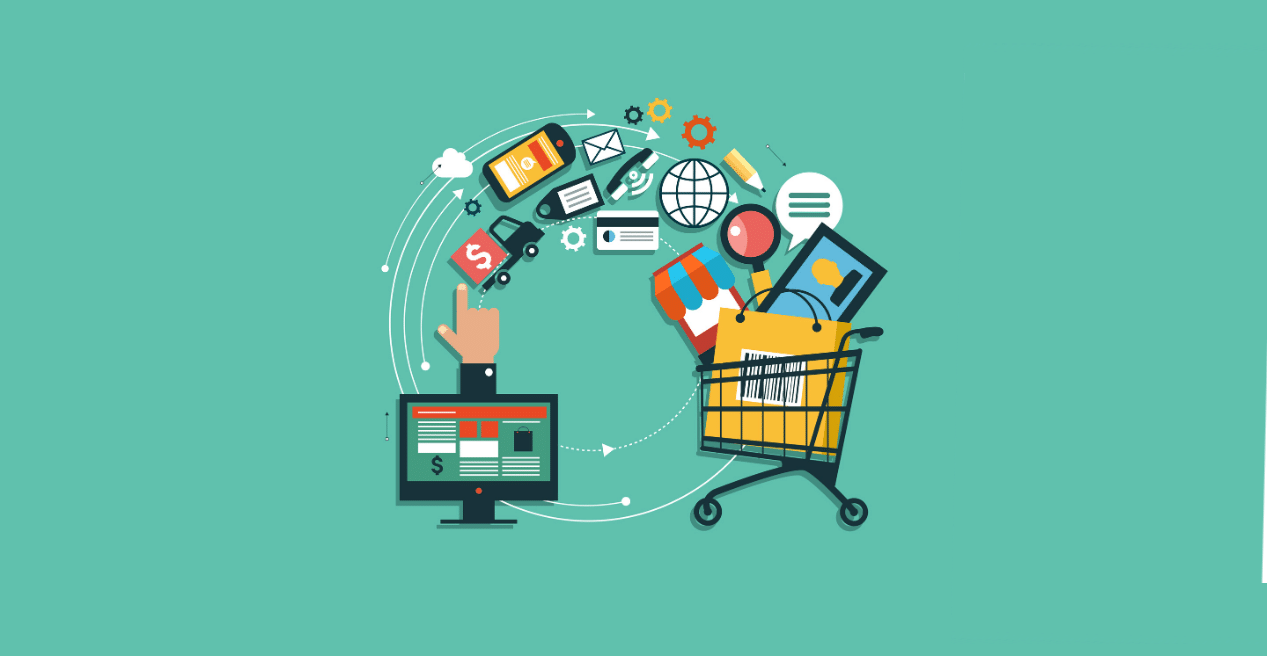
1) Online Shopping
Online shopping refers to the process of purchasing goods or services over the internet from various online retailers or e-commerce platforms. It has become increasingly popular due to its convenience, wide selection of products, and often competitive pricing. Here's an overview of the online shopping process:
Browsing : Customers browse through online stores and e-commerce websites to explore the products or services they are interested in purchasing. They can use search functions, browse categories, or explore featured items to find what they need.
Product Selection : Once customers find the products they want to buy, they add them to their virtual shopping cart. They may compare prices, read product descriptions, check reviews, and view images to make informed purchasing decisions.
Checkout Process : After selecting the desired items, customers proceed to the checkout process. They provide shipping information, select a delivery method, and choose a payment option.
Payment : Customers have various payment options available to complete their purchase, including credit cards, debit cards, digital wallets (such as PayPal, Apple Pay, or Google Pay), bank transfers, and sometimes cash on delivery (COD) depending on the retailer and location.
Security : Online shoppers should ensure that the website they are purchasing from is secure and uses encryption technologies to protect their personal and financial information during the transaction.
Order Confirmation : Once the payment is processed successfully, customers receive an order confirmation email or message with details of their purchase, including the order number, items purchased, total cost, and estimated delivery date.
Shipping and Delivery : The online retailer processes the order and ships the products to the customer's specified address. Customers may be able to track the status of their shipment using tracking numbers provided by the retailer.
Returns and Refunds : In case customers are not satisfied with their purchase or receive damaged or defective items, they may be able to initiate a return or request a refund according to the online retailer's return policy.
Online shopping offers several advantages, including convenience, 24/7 availability, a wide range of products, competitive pricing, and the ability to shop from the comfort of one's home. However, it's essential for online shoppers to exercise caution, ensure secure transactions, and be mindful of potential risks such as fraud or identity theft.
2) The Importance of marketplace
Marketplaces play a significant role in modern economies and are important for several reasons:
Increased Access : Marketplaces provide a platform for sellers to reach a broader audience of potential customers, including those beyond their local area or traditional marketing channels. This increased access to markets can help small businesses and entrepreneurs expand their customer base and grow their revenue.
Diverse Product Offerings : Marketplaces often offer a wide range of products and services from various sellers and vendors, giving consumers access to a diverse selection of goods and services in one place. This variety allows customers to compare products, prices, and features easily, leading to more informed purchasing decisions.
Competition and Innovation : The competitive environment of marketplaces encourages sellers to innovate and differentiate their products or services to stand out from competitors. This competition can drive improvements in product quality, customer service, and pricing, benefiting consumers and driving overall innovation in the market.
Lower Transaction Costs : Marketplaces streamline the buying and selling process, reducing transaction costs for both buyers and sellers. Sellers can leverage existing marketplace infrastructure, such as payment processing, logistics, and customer support, without having to invest in building their own infrastructure from scratch.
Trust and Reputation : Established marketplaces often have built-in mechanisms for verifying seller identities, managing transactions, and resolving disputes. These trust-building features help foster confidence among buyers and sellers, facilitating transactions and reducing the risk of fraud or misconduct.
Efficiency and Convenience : Marketplaces offer a convenient and efficient way for consumers to discover, compare, and purchase products or services online. With features such as search filters, reviews, and recommendations, marketplaces simplify the shopping experience and save consumers time and effort.
Global Reach : Online marketplaces have the potential to connect buyers and sellers from around the world, breaking down geographical barriers and enabling cross-border trade. This global reach opens up new opportunities for businesses to access international markets and diversify their customer base.
Economic Growth : Marketplaces contribute to economic growth by fostering entrepreneurship, creating jobs, and stimulating commerce and trade. By facilitating transactions and enabling efficient allocation of resources, marketplaces help drive economic activity and prosperity.
Overall, marketplaces play a vital role in the modern economy by connecting buyers and sellers, fostering competition and innovation, and driving economic growth and prosperity. As digital technology continues to evolve, the importance of marketplaces is likely to grow, shaping the way goods and services are bought and sold in the digital age.
Services

Merchant & Partner (Online)
Disclaimer: This service is provided on an “as is” and “as available” basis. RelamPay disclaims all liability and makes no express or implied representation or warranties of any kind in relation to the service including but not limited to: an availability, an accessibility, time lines, and uninterrupted use of the service; and sequence, accuracy, completeness, timeliness or the security of any data or information provided to you as part of the service. For more details and definitions, please refer to terms and conditions.